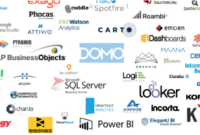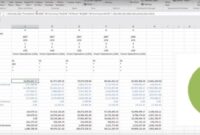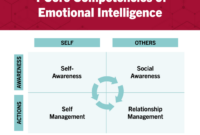Business intelligence analyst job requirements are a combination of technical skills, business acumen, and problem-solving abilities. These professionals are responsible for gathering, analyzing, and interpreting data to help businesses make informed decisions. In this guide, we’ll explore the essential requirements for a successful business intelligence analyst career.
To become a business intelligence analyst, you’ll need a strong foundation in mathematics, statistics, and computer science. A bachelor’s or master’s degree in a related field, such as business intelligence, data analytics, or computer science, is typically required.
Additionally, obtaining a certification in business intelligence or a related field can enhance your credibility and demonstrate your expertise.
Educational Requirements
To become a Business Intelligence Analyst, a strong educational foundation is crucial. A bachelor’s degree in a quantitative field such as mathematics, statistics, computer science, or a related discipline is typically required. These programs provide a solid understanding of data analysis, modeling, and programming.
Business intelligence analysts need a strong foundation in data analysis, data visualization, and business intelligence tools. One popular tool is looker business intelligence ,
which offers a user-friendly interface and powerful features for data exploration and reporting. Proficiency in looker business intelligence can enhance an analyst’s ability to deliver valuable insights and drive business decisions.
Additionally, pursuing a certification in Business Intelligence or a related field, such as the Certified Business Intelligence Professional (CBIP) or the Microsoft Certified Solutions Expert (MCSE): Data Analytics, can enhance your credibility and demonstrate your expertise in the industry.
Technical Skills
| Skill | Description | Examples |
|---|---|---|
| Data Analysis | Ability to extract insights from data using statistical techniques, data mining, and machine learning. | SQL, Python, R |
| Data Visualization | Creating visual representations of data to communicate insights effectively. | Tableau, Power BI, Google Data Studio |
| Database Management | Expertise in managing and querying databases to retrieve and manipulate data. | MySQL, Oracle, PostgreSQL |
| Programming Languages | Proficient in programming languages used for data analysis and manipulation. | Python, SQL, Java |
Business Acumen

Business Intelligence Analysts must possess a deep understanding of business processes, industry trends, and market dynamics. This enables them to interpret data in the context of business objectives and make informed recommendations. They should be able to identify key performance indicators (KPIs), analyze market competition, and understand the impact of data-driven insights on business decisions.
Communication and Presentation Skills
Effective communication and presentation skills are essential for Business Intelligence Analysts. They need to be able to clearly convey complex data and insights to stakeholders, including executives, business leaders, and technical teams. This involves creating engaging presentations, reports, and visualizations that resonate with the audience and drive decision-making.
To become a successful business intelligence analyst, you’ll need a solid understanding of bi business intelligence , data analysis techniques, and programming languages. BI analysts use their skills to collect, analyze, and interpret data to help businesses make better decisions.
If you’re interested in a career in business intelligence, it’s important to have a strong foundation in these areas.
Problem-Solving and Critical Thinking
Business Intelligence Analysts are tasked with solving business problems and making data-driven recommendations. They must possess strong problem-solving and critical thinking skills to identify and analyze business issues, develop solutions, and evaluate the impact of their recommendations. Case studies and scenarios often form part of the interview process to assess these abilities.
Industry Knowledge
Staying up-to-date on industry trends and best practices is crucial for Business Intelligence Analysts. They should be familiar with the specific challenges and opportunities within their industry and leverage this knowledge to provide tailored insights. Industry-specific certifications and attending industry events can enhance their expertise.
Ethical Considerations: Business Intelligence Analyst Job Requirements

Business Intelligence Analysts must adhere to ethical guidelines regarding data privacy, confidentiality, and bias. They should ensure that data is collected, stored, and used responsibly, and that their analysis and recommendations are free from bias or discrimination. Understanding data protection regulations and ethical frameworks is essential.
To excel as a business intelligence analyst, proficiency in data analysis techniques and tools is crucial. With the advent of business artificial intelligence , the role has evolved, demanding an understanding of machine learning and predictive analytics. These skills empower analysts to derive deeper insights from data, enabling businesses to make informed decisions and gain a competitive edge.
Final Wrap-Up
In conclusion, business intelligence analysts play a vital role in helping businesses make data-driven decisions. By fulfilling the job requirements Artikeld in this guide, you can position yourself for a successful career in this dynamic and rewarding field.
Frequently Asked Questions
What are the key technical skills required for a business intelligence analyst?
Essential technical skills include data analysis, data visualization, database management, and programming languages such as SQL, Python, and R.
What is the importance of business acumen for a business intelligence analyst?
Business acumen enables analysts to understand business processes, industry trends, and market dynamics, which is crucial for interpreting data and making informed recommendations.
How can I improve my problem-solving and critical thinking skills as a business intelligence analyst?
Practice identifying and analyzing business problems, developing solutions, and making data-driven recommendations. Case studies and scenarios can provide valuable opportunities to hone these skills.




